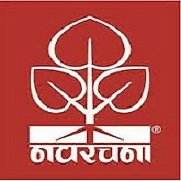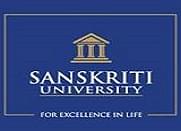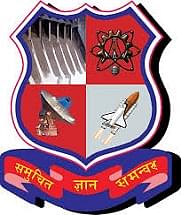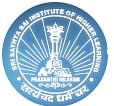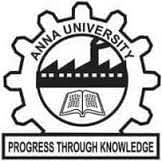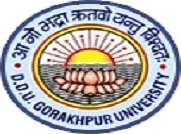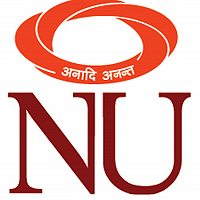Embark on a Teaching Career: B.Ed Admission 2024
As the academic year 2024 approaches, aspiring educators have a golden
opportunity to embark on a transformative journey through a Bachelor of
Education (B.Ed) program. This blog provides a comprehensive guide on the B.Ed
admission process, eligibility criteria, and syllabus, highlighting why
this degree is crucial for a rewarding teaching career.
Why Pursue a B.Ed?
Bed Admission 2024 is more than just a degree; it is a gateway to
shaping the minds of future generations. This professional course is designed
to prepare individuals for teaching roles at various educational levels, from
primary to higher secondary schools. With the increasing emphasis on quality
education, a B.Ed degree equips educators with the necessary skills,
knowledge, and pedagogical strategies to effectively impart education and
foster a conducive learning environment.
Admission Process for B.Ed 2024
The admission process for the B.Ed program typically involves several
steps, which can vary slightly depending on the institution. Here is a detailed
overview:
Research and Selection of Institutions:
Start by researching various colleges and universities offering B.Ed
programs. Consider factors such as accreditation, faculty, infrastructure,
placement records, and specialization options.
Meeting Eligibility Criteria:
Ensure you meet the eligibility criteria, which generally include a
minimum educational qualification and specific academic performance standards.
Application Form:
Obtain the application form from the chosen institution's official
website or admission office. Fill out the form accurately, providing all
required personal and academic details.
Entrance Examination:
Most institutions require candidates to appear for an entrance
examination. Common entrance exams for B.Ed college include state-level
tests like CET (Common Entrance Test), university-specific exams, or
national-level tests such as CEE (Common Entrance Examination).
Preparation for the Entrance Exam:
Prepare thoroughly for the entrance exam. The syllabus typically
includes sections on general knowledge, teaching aptitude, logical reasoning,
and subject-specific knowledge.
Exam Results and Merit List:
After the entrance exam, the results will be announced, and a merit list
will be prepared based on candidates' performance. Shortlisted candidates will
be called for further rounds.
Counseling and Document Verification:
Selected candidates will participate in a counseling session where they
can choose their preferred institutions and specializations. During counseling,
candidates must also submit their original documents for verification.
Admission Confirmation:
Once the counseling process is complete, candidates will receive an
admission offer from their chosen institution. Pay the required fees to confirm
your admission.
Eligibility Criteria
The eligibility criteria for B.Ed programs can vary, but generally
include the following:
Educational Qualification:
A minimum of a bachelor's degree from a recognized university. Some
institutions may require specific minimum marks (e.g., 50% aggregate).
Subject Requirements:
Some institutions may have specific subject requirements based on the
specialization chosen (e.g., science, arts, commerce).
Entrance Exam:
Qualifying the entrance exam conducted by the institution or relevant
authority.
Syllabus for B.Ed
The B.Ed syllabus is designed to provide a balanced mix of
theoretical knowledge and practical teaching experience. It typically spans two
years, divided into four semesters. Here is an overview of the common subjects
and topics covered in a B.Ed program:
Foundations of Education:
Philosophical and Sociological Foundations of Education
Psychological Foundations of Education
Historical and Political Perspectives of Education
Educational Psychology:
Understanding Learners and Learning Processes
Child and Adolescent Development
Motivation and Classroom Management
Teaching Methodologies and Pedagogical Practices:
Curriculum and Instructional Design
Teaching Strategies and Techniques
Assessment and Evaluation Methods
Specialization Subjects:
Subject-specific pedagogy (e.g., Mathematics, Science, Social Studies,
Language Teaching)
Inclusive Education and Special Needs
Educational Technology and ICT:
Integration of Information and Communication Technology in Teaching
Digital Learning Tools and Resources
Research Methods in Education:
Introduction to Educational Research
Data Collection and Analysis
Action Research in Education
Practical Teaching and Internships:
Micro-teaching Sessions
Teaching Practice and Internship in Schools
Reflective Teaching and Feedback
Contemporary Issues in Education:
Environmental Education
Gender, School, and Society
Health and Physical Education
Career Opportunities After B.Ed
Completing a B.Ed opens up a plethora of career opportunities in the
field of education. Graduates can pursue various roles such as:
School Teacher:
Teaching positions in primary, secondary, and higher secondary schools.
Educational Administrator:
Roles in school administration, curriculum planning, and educational
policy-making.
Curriculum Developer:
Designing and developing educational content and curricula for schools
and educational organizations.
Educational Consultant:
Providing expert advice and guidance to educational institutions, NGOs,
and government bodies on educational programs and policies.
Special Education Teacher:
Working with students with special needs and disabilities, providing
tailored educational support.
Private Tutor:
Offering personalized tutoring services to students across various age
groups and subjects.
Conclusion
Universityfindo provides you various platform for your further
education. Visit our website universityfindo.com.






